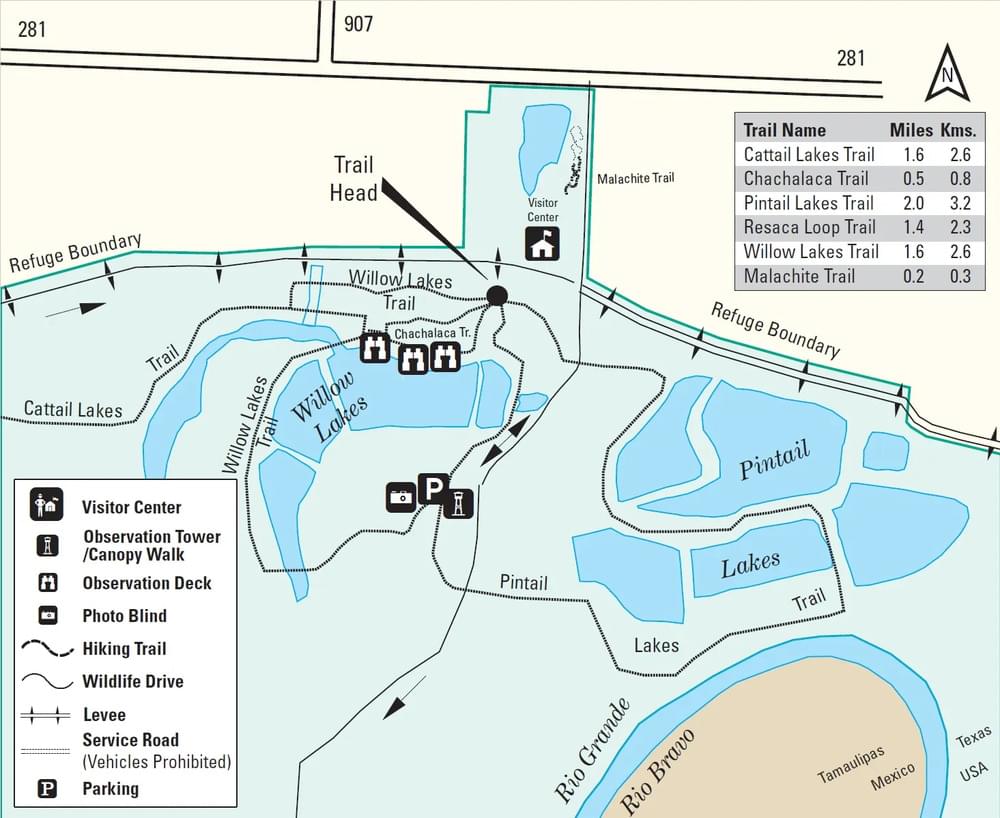Santa Ana NWR--Observation Tower
Santa Ana NWR--Observation Tower
Alamo, Texas 78516
Santa Ana National Wildlife Refuge Official WebsiteSanta Ana National Wildlife Refuge map
About Santa Ana National Wildlife Refuge
See all hotspots at Santa Ana National Wildlife Refuge
Established in 1943 for the protection of migratory birds, Santa Ana National Wildlife Refuge is positioned along an east-west and north-south juncture of two major migratory routes for many species of birds. It is also at the northernmost point for many species whose range extends south into Central and South America. The refuge is right in the middle of all this biological diversity, which is what makes this 2,088-acre parcel the ‘jewel of the National Wildlife Refuge System.’ Though small in size, Santa Ana offers visitors an opportunity to see birds, butterflies, and many other species not found anywhere else in the United States beyond deep South Texas.
Zebra longwings, Julias, and Mexican bluewings are but a few of the more than 300 butterfly species found on the refuge. Peak diversity falls between October and December with a single October day known to produce a tremendous 65 documented species! The butterflies of Santa Ana National Wildlife Refuge are mainly tropical, with many species occurring only as occasional migrants or transients from Mexico.
At an ecological crossroad, Santa Ana is strategically located where the subtropical climate, gulf coast, great plains, and Chihuahuan desert meet. Here, next to the Rio Grande, you will find Sabal palms growing alongside prickly pear cactus, a habitat for the ocelot and jaguarundi, two endangered cat species known to still prowl the deep forest. Lucky visitors might see coyotes and bobcats. Look for fresh diggings left by nine-banded armadillos. Lizards, snakes, and the Texas tortoise bask in the summertime heat, and days close with Mexican free-tailed bats wheeling across star-studded skies.
Content from Santa Ana National Wildlife Refuge Official Website
